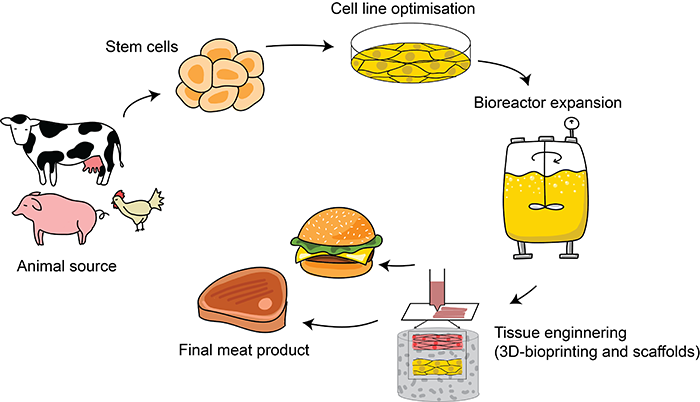Embracing Zero Waste Living - Rethinking Consumption

Breaking Free from Single-Use Culture
The Devastating Impact of Single-Use Plastics
Single-use plastics and disposable products have become a norm in our daily lives. We use them once, often for mere minutes, and then discard them, unaware of the lasting consequences. However, this convenience comes at a significant environmental cost. The staggering truth is that single-use plastics are among the largest contributors to waste management issues, polluting our oceans, waterways, and landscapes.
The Need for a Paradigm Shift
Embracing zero waste living requires a shift in mindset and consumption habits. We must recognize that our daily choices have a profound impact on the planet. By breaking free from single-use culture, we can significantly reduce waste, conserve natural resources, and mitigate climate change. It's time to rethink our relationship with stuff and adopt a more mindful approach to consumption.
Strategies for Change
So, where do we start? Here are some simple yet effective strategies to help you break free from single-use culture:
- Refuse single-use plastics like straws, bags, and water bottles. Opt for reusable alternatives instead.
- Choose products with minimal packaging or those that use biodegradable materials.
- Purchase in bulk and plan your meals to avoid food waste.
- Support companies that prioritize sustainability and adopt circular business models.
- Engage in conversations with friends, family, and community members to raise awareness and inspire collective action.
Embracing a Zero Waste Lifestyle
Embracing zero waste living is a journey, not a destination. It requires patience, creativity, and a willingness to learn and adapt. By breaking free from single-use culture, we can create a more sustainable future, where waste is minimized, and resources are valued. Join the movement, and together, let's redefine what it means to live a fulfilling life.
Understanding the Zero Waste Hierarchy
The zero waste hierarchy is a framework for reducing waste and achieving a more sustainable lifestyle. It's a simple yet effective approach to rethinking consumption and minimizing our environmental impact.
Refuse: Breaking the Single-Use Habit
The first step in the zero waste hierarchy is to refuse single-use products and opt for reusable alternatives. This means saying no to disposable bags, water bottles, straws, and other items that are used once and then discarded. Instead, choose products that can be used multiple times, such as cloth bags, stainless steel water bottles, and metal or glass straws.
Reduce: Minimizing Consumption and Waste
The next step is to reduce consumption and choose products with minimal packaging. This involves being mindful of our purchasing habits and avoiding products with excess packaging. Buy in bulk, choose items sold loose, and select products with minimal or biodegradable packaging.
Reuse: Creative Repurposing
Reuse is about finding creative ways to repurpose items instead of discarding them. This can include turning old jars into planters, using old t-shirts as cleaning rags, or repurposing old cardboard boxes as storage containers. Get creative and think outside the box!
Recycle: Proper Disposal
The final step is to properly recycle items that cannot be reused or reduced. Make sure to recycle correctly by following local guidelines and separating materials accordingly. This ensures that materials are properly processed and transformed into new products, reducing the need for raw materials and minimizing waste.
Practical Tips for a Zero Waste Lifestyle
Embracing a zero-waste lifestyle requires a combination of small changes and significant mindset shifts. Here are some practical tips to help you get started:
1. Carry Reusable Essentials
Make a habit of carrying reusable bags, water bottles, and coffee cups. This simple switch can significantly reduce the amount of single-use plastic waste you generate. Choose durable, eco-friendly options that can be used multiple times.
2. Opt for Minimal or Biodegradable Packaging
When shopping, select products with minimal or biodegradable packaging. Avoid items with excess plastic wrapping, and instead, choose products sold in bulk or with compostable packaging. This conscious choice can reduce waste and promote sustainable practices.
3. Plan Meals and Make a Grocery List
Plan your meals and create a grocery list to avoid buying unnecessary items and reduce food waste. This approach will help you save money, reduce your environmental impact, and enjoy a more organized kitchen.
4. Compost Food Waste and Use as Fertilizer
Composting food waste is a great way to reduce your waste output and create nutrient-rich fertilizer for your garden. Set up a compost bin or pile and add food scraps, coffee grounds, and yard trimmings. This natural process will help divert waste from landfills and support sustainable gardening practices.
Benefits of Embracing Zero Waste Living
Adopting a zero-waste lifestyle has numerous benefits that extend beyond individual actions to positively impact the environment and society as a whole.
Environmental Benefits
Embracing zero waste living significantly reduces greenhouse gas emissions, supporting climate change mitigation efforts. By minimizing waste, we decrease the amount of energy needed to produce, transport, and dispose of goods, resulting in lower emissions.
Furthermore, zero waste living conserves natural resources by reducing the extraction, processing, and consumption of raw materials. This approach also decreases landfill waste, minimizing the production of methane, a potent greenhouse gas.
Economic Benefits
Zero waste living can have a positive impact on your wallet. By reducing consumption and waste, you can save money on unnecessary purchases, packaging, and disposal costs. Additionally, buying in bulk, choosing products with minimal packaging, and repurposing items can lead to significant cost savings.
Social Benefits
Embracing zero waste living inspires community involvement and promotes sustainability. By sharing knowledge, resources, and best practices, individuals can educate and motivate others to adopt environmentally conscious habits, fostering a sense of community and collective responsibility.
As more people embrace zero waste living, it can lead to increased demand for sustainable products, driving innovation and encouraging businesses to adopt eco-friendly practices. This, in turn, can create new job opportunities and stimulate local economies.
Overcoming Challenges and Staying Motivated
Rethinking consumption and embracing zero waste living can be a daunting task, but with the right mindset and strategies, anyone can overcome the challenges and stay motivated. Here are some key points to help you on your journey:
Start Small and Gradually Work Towards a Zero Waste Lifestyle
Don't try to change everything at once. Begin with small, manageable steps, like reducing your use of single-use plastics or starting a compost bin. As you become more comfortable, you can gradually work your way up to bigger changes.
Connect with Like-Minded Individuals for Support and Inspiration
Join online communities, attend local events, or participate in social media groups focused on sustainable living. Connecting with others who share your goals will help you stay motivated and inspired.
Celebrate Small Victories and Acknowledge Progress
Recognize and celebrate each small success along the way, whether it's a week without single-use plastics or a successful DIY project. Acknowledging your progress will help you stay motivated and encouraged to continue.
Stay Informed About Sustainable Practices and Product Innovations
Continuously educate yourself on new sustainable practices, product innovations, and environmental issues. Staying informed will help you make better choices and stay motivated to continue your zero waste journey.


















Comments ()